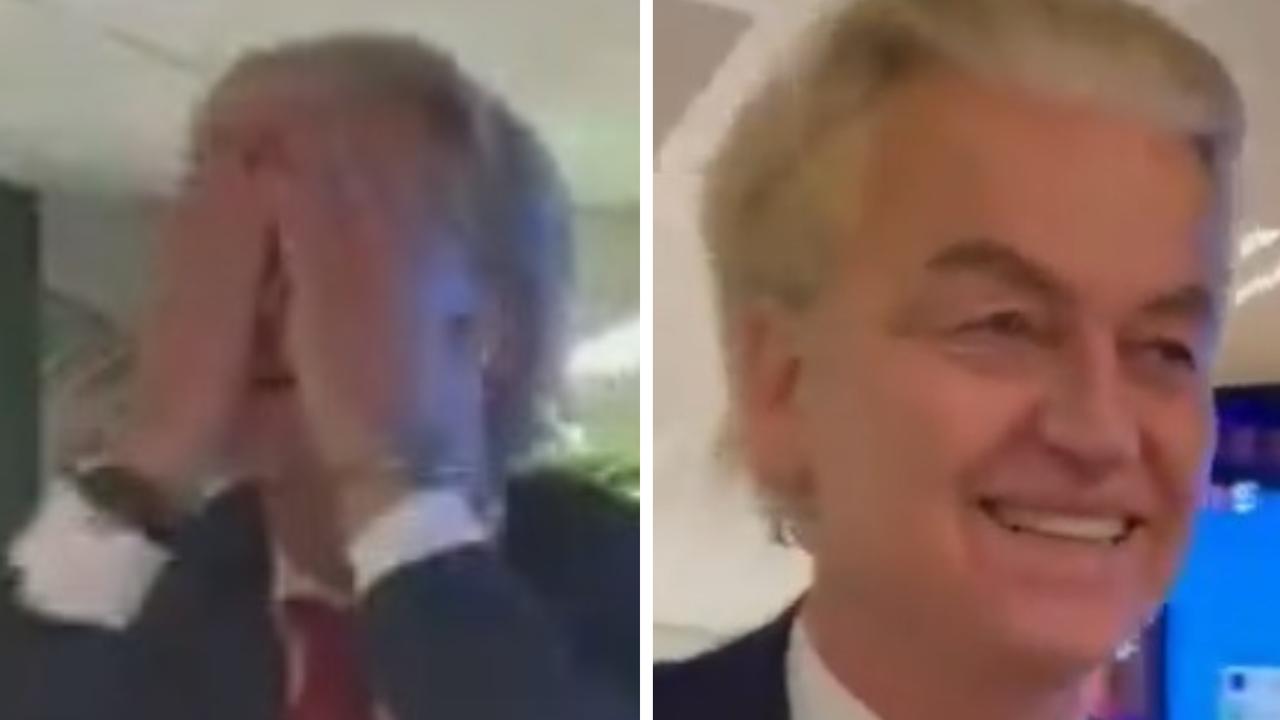[ad_1] Geert Wilders, a far-right, anti-Islam Dutch politician who wants to ban mosques and deport illegal immigrants, has won the Netherlands elect
[ad_1]
Geert Wilders, a far-right, anti-Islam Dutch politician who wants to ban mosques and deport illegal immigrants, has won the Netherlands election in a political earthquake that will be felt across Europe.
Exit polls on Wednesday suggested the firebrand’s PVV (Freedom Party) had won 35 seats in 150-seat parliament, comfortably winning the election.
The centre-right VVD party of outgoing Prime Minister Mark Rutte appears to have lost 10 seats to hold 24, while the Labour-Green alliance (PvdA-GL) is on track to pick up eight for a total of 25.
PVV, now likely the biggest party in the Netherlands, more than doubled the number of seats it secured at the 2021 election.
The bombshell result comes just days after Argentina elected wild-haired libertarian Javier Milei in another populist uprising.
“This exit poll is historic — it is the biggest shift we have ever seen in the Netherlands,” political scientist Tom van der Meer told national broadcaster NOS, per Politico.
If confirmed in the final results, Mr Wilders’ victory marks a sharp lurch to the right that will be viewed with trepidation in Brussels – the PVV has promised a referendum on Dutch membership of the European Union.
Viktor Orban, Hungary’s right-wing President, was quick to congratulate Mr Wilders.
“The winds of change are here!” he wrote on X.
Although Mr Wilders appeared to have triumphed in the polls, it is not clear he will be able to garner the necessary support for a broad enough coalition to form a workable government.
All the leaders of the three other top parties have said they would not serve in a PVV-led coalition.
“I call on the parties. Until now, we were in a campaign. Now the campaign is over and the voters have spoken. Now we will have to look for agreements with each other,” Mr Wilders said.
“With a wonderful position of 35 seats, the PVV can no longer be ignored.”
Immigration was the key topic of the campaign and his hard line stance, including closing the borders and deporting illegal immigrants, seemed to have resonated with Dutch voters.
“The Dutch hope that the people can get their country back and that we will ensure that the tsunami of asylum-seekers and immigration is reduced,” Mr Wilders said.
Kate Parker, from the Economist Intelligence Unit, said it would lead to “constitutional stalemate” in the EU’s fifth-largest economy.
Mr Wilders is known as the “Dutch Trump”, partly for his swept-back dyed hairstyle that resembles the former US President, but also for his rants against immigrants and Muslims.
From calling Moroccans “scum” to holding competitions for cartoons of the Prophet Mohammed, Mr Wilders has built a career from his self-appointed mission to stop an “Islamic invasion” of the West.
During the campaign, he sought to tone down his message, saying he could put some of his more strident views on Islam “in the freezer”.
He stressed he would be Prime Minister for everyone “regardless of their religion, background, sex or whatever”, insisting the cost-of-living crisis was a bigger priority.
But as his opponents never tired of pointing out, his PVV manifesto told a different story.
With hallmark Wilders rhetoric, the manifesto said, “Asylum-seekers feast on delightful free cruise-ship buffets while Dutch families have to cut back on groceries.”
The program proposed a ban on Islamic schools, Korans and mosques. Headscarves would be banned from government buildings. “The Netherlands is not an Islamic country,” it added.
A “binding referendum” would be held on a “Nexit” – the idea of the Netherlands leaving the EU. The PVV also calls for an “immediate halt” to development aid.
On foreign policy, the parallels to Donald Trump were clear. “Netherlands first,” trumpeted the manifesto.
The PVV would move the Dutch embassy to Jerusalem to support Israel, a “close friend and the one true democracy in the Middle East”.
Mr Wilders has remained defiant despite brushes with the law and death threats that have meant he has been under constant police protection since 2004.
“I don’t regret fighting for freedom,” Mr Wilders told AFP in an interview ahead of elections in 2021.
“Of course I take a stand. I am under attack, my country is under attack.”
He was found guilty of discrimination in 2016 over comments he made against Moroccans living in the Netherlands.
At the time, he slammed the conviction as a “shameful” attack on free speech and an attempt to “neutralise” him.
The politically charged prosecution centred on comments Mr Wilders made before and after the Dutch municipal elections in 2014.
At one meeting in a Hague cafe, he asked supporters whether they wanted more or fewer Moroccans in the Netherlands. That sparked a chant of, “Fewer! Fewer! Fewer!” — to which he replied, “We’ll take care of it.”
Mr Wilders has previously likened the Koran to Adolf Hitler’s Mein Kampf, saying both books should be banned.
He was forced to shelve plans for a cartoon competition of the Prophet Mohammed in 2018 after receiving death threats.
Mr Wilders was competing in his sixth election, having come close to pulling off a stunning upset more than once.
“When I left my old party [the VVD] … I said one day we will become the biggest party,” Mr Wilders told reporters while casting his vote.
If the exit polls are confirmed, his decades-old prediction looks to have come true.
Speaking to party members after the first exit polls, VVD leader Dilan Yeşilgöz admitted the result was not what they had expected.
“I think there are big lessons for politicians in this,” she said, Politico reported.
“People were not listened to enough, and not enough workable solutions were offered. The lead is not with us now. But I am incredibly proud of the party and of all of you.”
[ad_2]
Source link



COMMENTS